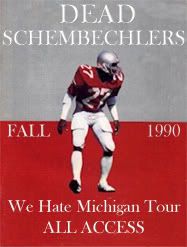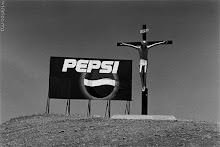I Need Access To The OED.
Local Girl caught me by surprise when she noticed what she thought was a familial glitch in our otherwise mostly upstandingly correct use of the English. It made her cringe to hear us use it, as it was one of those ways that hill-jacks (is this hyphenated?) and toddlers abuse the language. By copying from another area of English. Inadvertently wrongly.
Boughten. Milk not derived from the cows out back is most likely boughten. This gingham dress was not boughten; I sewed it myself.
Created out of need, because “bread I did buy at the store” is clumsy as a two legged giraffe.
When she told me this was improper English, I at first did believe her, believe that we were perhaps the unsophisticated hicks we pretend so hard not to be. It’s a pretty silly word. I was worried mostly by the fact that I’d never noticed anyone use it, or be offended by its casual usage.
For days this did nag me. Tonight the usually unreliable dictionary dot com assuaged my misplaced fears. The American Heritage Dictionary has this to say:
More to read via the Wikipedia: linguistic prescription.
Boughten. Milk not derived from the cows out back is most likely boughten. This gingham dress was not boughten; I sewed it myself.
Created out of need, because “bread I did buy at the store” is clumsy as a two legged giraffe.
When she told me this was improper English, I at first did believe her, believe that we were perhaps the unsophisticated hicks we pretend so hard not to be. It’s a pretty silly word. I was worried mostly by the fact that I’d never noticed anyone use it, or be offended by its casual usage.
For days this did nag me. Tonight the usually unreliable dictionary dot com assuaged my misplaced fears. The American Heritage Dictionary has this to say:
bought·en (bôt n)But the interesting part was an attached regional disclaimer:
v.
A past participle of buy.
adj.
1 Commercially made; purchased, as opposed to homemade: boughten bread.
2 Artificial; false. Used of teeth.
American regional dialects allow freer adjectival use of certain past participles of verbs than does Standard English. Time-honored examples are boughten (chiefly Northern U.S.) and bought (chiefly Southern U.S.) to mean “purchased rather than homemade”…The Northern form boughten (as in store boughten) features the participial ending -en, added to bought, the participial form, probably by analogy with more common participial adjectives such as frozen.Disclaimer: I believe that Local Girl learned to speak mainly from her mother, who is a Southern Lady, and was therefore listening with a tainted ear for these parts. Her reach for correctness extends to ending sentences prepositionally.
More to read via the Wikipedia: linguistic prescription.



